‘New India’ is leaving its imprint globally. Consequently, a sense of defeat has forced foreign powers to hatch a conspiracy to see us in perpetual conflict. As one of the biggest market and youth workforce, we are making maximum possible use of our conduct, capacity and courage to achieve larger goals. But larger success always has larger challenges. And we have identified some during this phase of transition. Despite maintaining a Left-liberal stand, even the Kerala Government never denied the potential of threat that PFI poses to the country.
On August 11, 2020, violence erupted in Bangalore. The planned group of rioters carrying arms set the house of Congress party’s Dalit MLA Akhanda Srinivasamurthy on fire and damaged all public properties in the vicinity. The rioters were screaming ‘Allah-hu-Akbar’ and ‘Nara-e-Taqbeer (Allah is the greatest)’ in rhythm. It seemed like a choir sung by a mob, which was trained for a particular purpose. All this was done because the MLA’s nephew had posted a graphic on social media, allegedly anti-Islam. Later, the police arrested and found several leaders of the Social Democratic Party of India (SDPI), the political front of the Popular Front of India (PFI), involved in the violence. Later a pattern of involvement of PFI was visible in the CAA protests and Hathras Dalit girl gang rape.
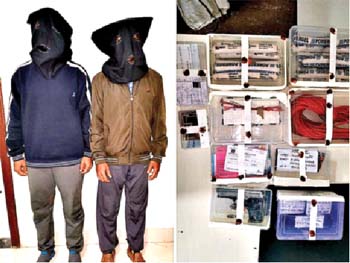
PFI is a model that can be compared with Hafiz Saeed’s led “Jamaát-ud-Dawa (JuD)” of Pakistan. It talks of lofty ideals, like humanitarian charity. But, in reality, it works as a germination centre for new seeds of terror outfits like Lashkar-e-Taiba (LeT) & Jaish-e-Mohammed (JeM). Many countries also recently banned the JuD. Even Pakistan did the same, albeit under international pressure, and as a face-saving exercise. In India, the process has begun with Jharkhand becoming the first State to ban PFI in 2019.
Agenda and Alliances
Initially, PFI started in Kerala as a successor to the National Development Front (NDF) in 2006. Later, it merged with Karnataka Forum for Dignity (KFD) of Karnataka and Manitha Neethi Pasarai (MNP) of Tamil Nadu. In other States, the organisations that merged with PFI were Goa’s Citizens Forum, Rajasthan’s Community Social and Educational Society, West Bengal’s Nagarik Adhikar Suraksha Samiti, Manipur’s Lilong Social Forum and Andhra Pradesh’ Association of Social Justice. It has sister organisations like Rehab India Foundation, Indian Fraternity Forum, Confederation of Muslim Institutions in India, Muslim Relief Network (MRN) and Sathya Sarani-Markazul Hidaya.
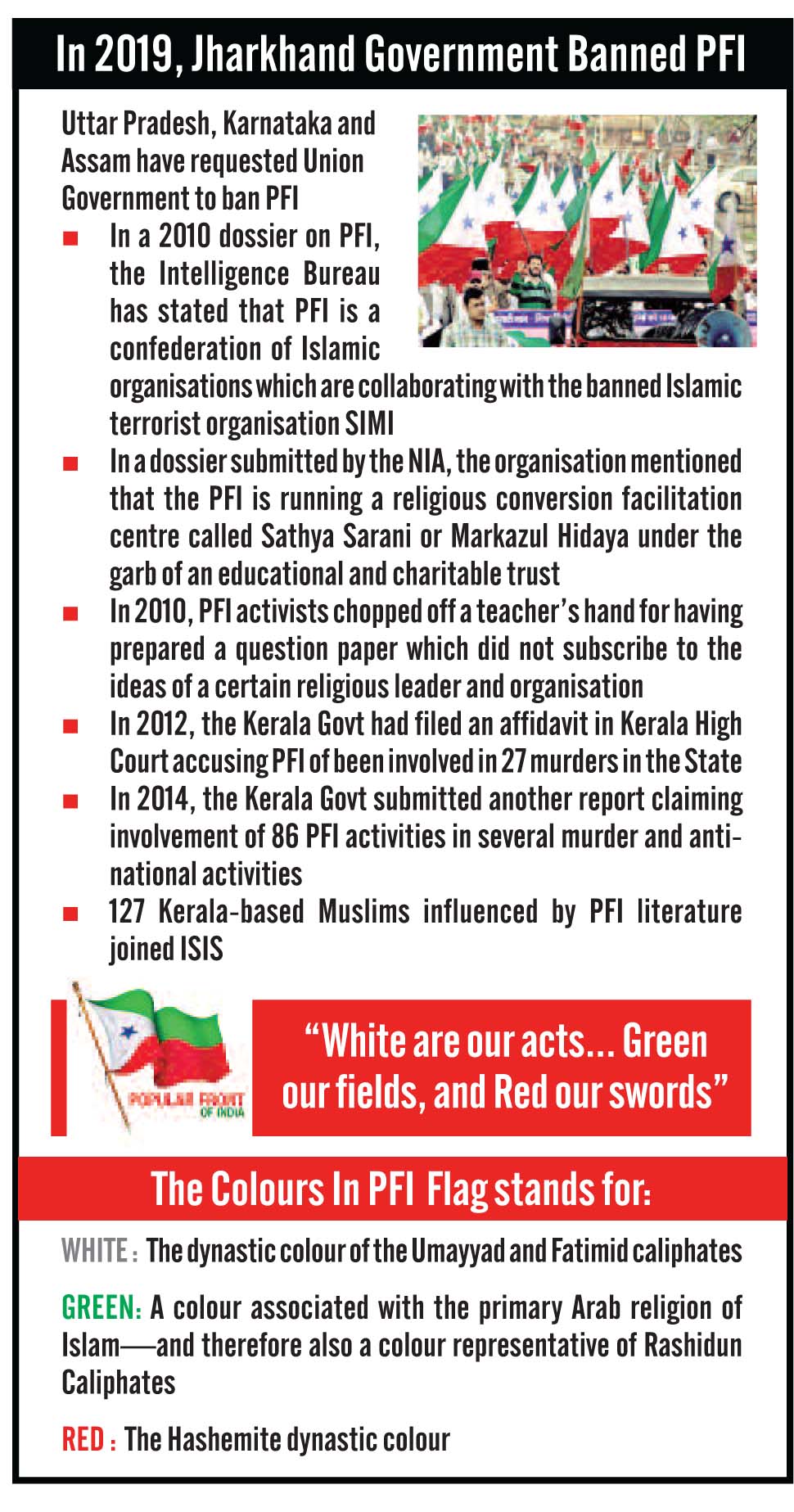
PFI has officially maintained that it is involved in issues such as Muslim reservations, personal law courts for Muslims, the cause of Dalits, Sikhs and Tribals. Today, it has been successful in acquiring a multi-state dimension. PFI also cooperates with the National Confederation of Human Rights Organisations and several other human rights organisations. But all these activities are camouflage to its main agenda, which is to de-stabilise India. PFI, unlike older avatars, is extremely well-funded and has been steadily building institutions like newspapers, publications and educational institutions.
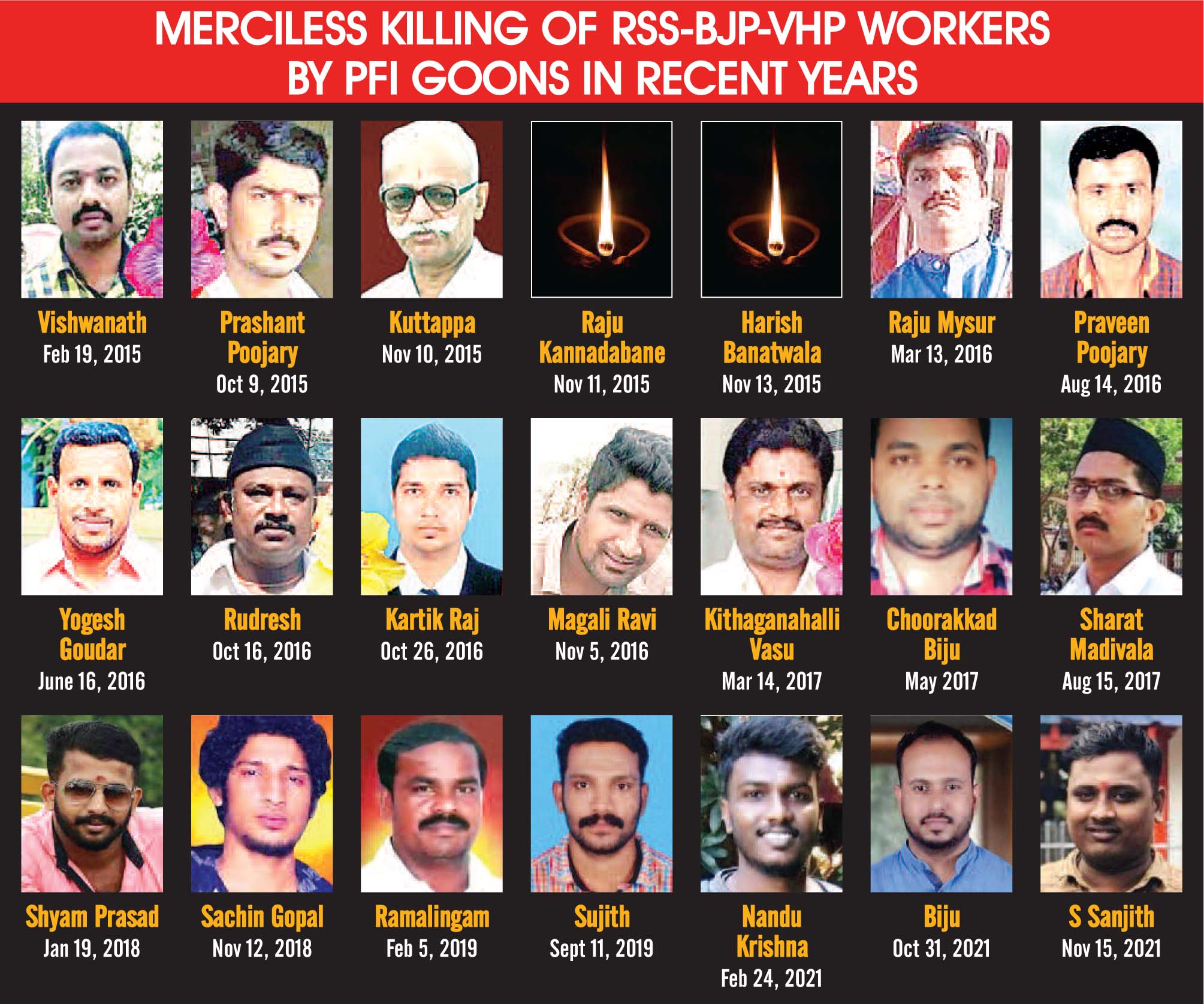
Although a recent entrant as an organisation, the ideology of PFI is at least a century-old and the conviction behind it, at least a millennium-old. The formation of such organisations is a result of relentless propaganda and action dedicated to the cause of the destruction of plurality and the establishment of monotheistic world order. Throughout a little more than 100 years, such organisations/forums have been coming into existence—often either giving way to the next forum or merging among each other. From All India Muhammadan Educational Conference (1886) to Muslim League (1906) to the formation of the Militant Muslim League Volunteer Corps (1918), Tablighi Jamaát (1926), Muslim National Guards (1931) or the later avatars like Jamaát-e-Islami Hind (1948), Indian Union Muslim League (1948), SIMI (1977), Islamic Sevak Sangh (1992), Peoples’ democratic Party (Kerala), (1993), National Development Front (1994), Karnataka Forum for Dignity (2001), Manitha Neethi Pasarai (2001), Tamil Nadu Thowheed Jamaáth (2004), and, finally PFI (2006)—the story has just continued.
Old wine in new bottles
The only thing that changes for them is their name and, probably, the organisational set up. Many times, even the personnel at the helm either don’t change, or the same person is active in different organisations, which keep taking shape over the years. The only change being their names and overt format to an extent.
For instance, let us take the example of present PFI national executive member, Prof P Koya, who was also the founding member of extremist Islamist organisation, SIMI, and the central council member of the NDF. The SIMI, in turn, was founded as a students’ wing of the Jamaát-e-Islami Hind (JIH) on April 24, 1977. It got separated in 1981, and interestingly, just a year later, the Jamaát came up with a new students’ organisation named Students’ Islamic Organisation (SIO) on October 19, 1982. The SIO is working on the same lines of the SIMI. One of the famous poster girls of the recent anti-CAA (Citizenship Amendment Act) protest in Jamia Millia Islamia was Ladeeda Sakhloon. She was an SIO member, and her husband is presently an official SIO member.
When SIMI was banned and the security agencies apprehended its cadres for their terror ventures, the Jamaát-e-Islami-Hind (JIH) was quick to disown SIMI. When the process of banning and dismantling SIMI started, most of their SIMI cadres were absorbed into organisations like the NDF and PFI and some even went back to its parent organisation, i.e. JIH.
Former PFI chairman EM Abdul Rahiman was all-India General Secretary of SIMI in 1980-81 and 1982-93, PFI National Vice-Chairman P Koya was with SIMI in 1978-79 and current president E Aboobacker was Kerala State President of SIMI in 1982-84, while the State Secretary Abdul Hameed Master was SIMI’s former National Secretary. Most former leaders of SIMI were the founding fathers of PFI or currently holding various portfolios in PFI.
In the JNU sedition case of 2016 and the recent anti-CAA protests across the country, the name of Umar Khalid came up very prominently (he got arrested on September 14, 2020). Khalid’s father, Sayed Qasim Rasool Illyas was among the founding fathers of SIMI, and at one point, he was also the national president of SIMI. However, he claims to have disassociated from SIMI in 1985. Presently, Illyas is national President of the Welfare Party of India (WPI), which is the political-wing of JIH. It is the same JIH of which SIMI was once a student-wing founded in 1977.
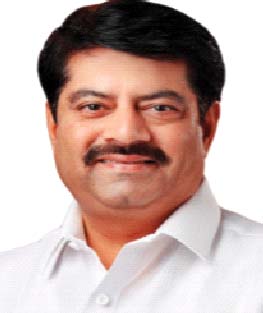
There is a story behind how SIMI got separated from Jamaát, which is still hard to believe. In 1981, SIMI activists protested against Palestine Liberation Organisation (PLO) leader Yasser Arafat’s visit to India and greeted him with black flags in New Delhi. SIMI members identified Arafat as a Western puppet, while the stand of Jamaát was opposite to that of SIMI.
Indeed, the JIH and SIMI never separated. The fig-leaf of separation ensured that if one got caught, the other didn’t bear the brunt. The media and the Indian agencies were, of course, kept busy with ‘separation’. This strategy is still viable for organisations like PFI. PFI’s political wing Social Democratic Party of India (SDPI) and WPI can be found working together on many occasions. Khalid’s father (Illyas) claims to have separated from the banned terrorist organisation SIMI, and the son (Khalid) working on the same anti-India agenda proves a pattern.
Concomitantly, Abdul Nasser Madani, who had founded Islamic Sevak Sangh (ISS), formed the People’s Democratic Party (Kerala) after the ISS got banned. The PDP (Kerala) was then transmuted into the NDF.
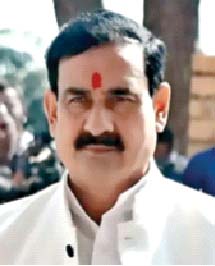
The NDF absorbed members from both SIMI and ISS until it finally merged into the PFI in 2006. NDF was basically the re-incarnation of the ISS. Before merging into PFI, the NDF was facing grievous criminal charges, which could have resulted in a ban.
The expose by India Today, in October 2017, had made it pretty clear as to how PFI was executing money laundering and hawala from West Asia. Hence, PFI can be termed a jihadi corporation that feeds on the inherent plurality and secularism of Indian society, drawing nourishment from the traits of suicidal minority-ism prevalent in practice to destroy the very pluralism and establish a monotheistic/semitic world order.
In this sting operation, Zainaba AS associated with Islamic outfit Sathya Sarani’s women-wing says,“Islamic State is the final goal.” While Ahmed Shareef, PFI’s founder member and Managing Editor of its mouthpiece, Gulf Thejas, can be heard saying that, “After making India an Islamic state, PFI will go to other States.”
The other States in India must urgently follow the Jharkhand model in banning the super extremist PFI. The affiliated organisations as its upper cover of being a humanitarian organisation is already blown up.



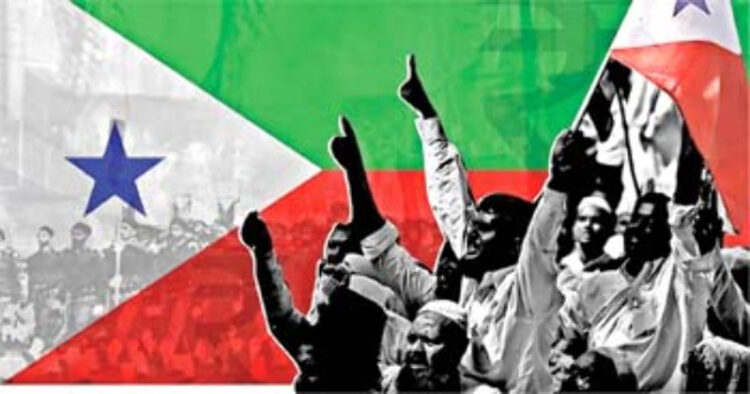










Comments